20 Things You Should Never Say to Someone in the Military
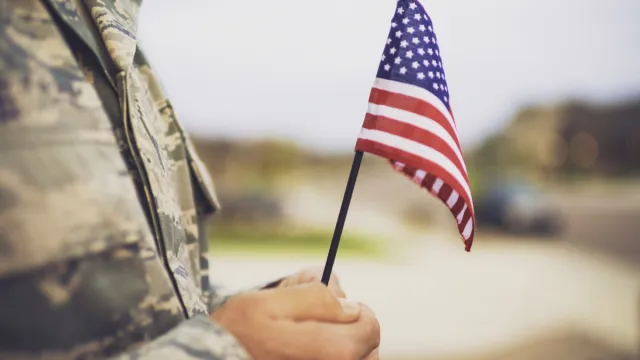
Today, there are nearly 1.3 million Americans actively serving in the military, according to the Council on Foreign Relations. Every day, these military men and women are working diligently to protect our freedoms, while often facing life-threatening dangers. And while many members of the military return home to a hero’s welcome, for many others, being among civilian company means fielding a seemingly endless barrage of intrusive and offensive questions.
While a “thank you for your service” will rarely go unappreciated, there are countless ways civilians can offend members of our armed services, even with seemingly innocuous conversation-starters. “Usually only civilians who have no connections to the military ask inappropriate questions about war and battle experience,” says Katie, a New York-based former army member.
So, before you start chatting up a veteran or a present service member, make sure you’re not uttering any of these things you should never say to someone in the military, whether currently or previously. And for more things only someone who’s served will know, check out these 23 Slang Terms Only Veterans Know.
1
“How many people have you killed?”

“Never ask, ‘How many people have you killed?'” according to Katie. While many people in the armed services will have seen combat, it’s unlikely that they’re eager to share traumatic details of their wartime experience so freely. In fact, for some members of the military with post-traumatic stress disorder (PTSD), discussing combat can be a trigger.
2
“What kind of action did you see in combat?”
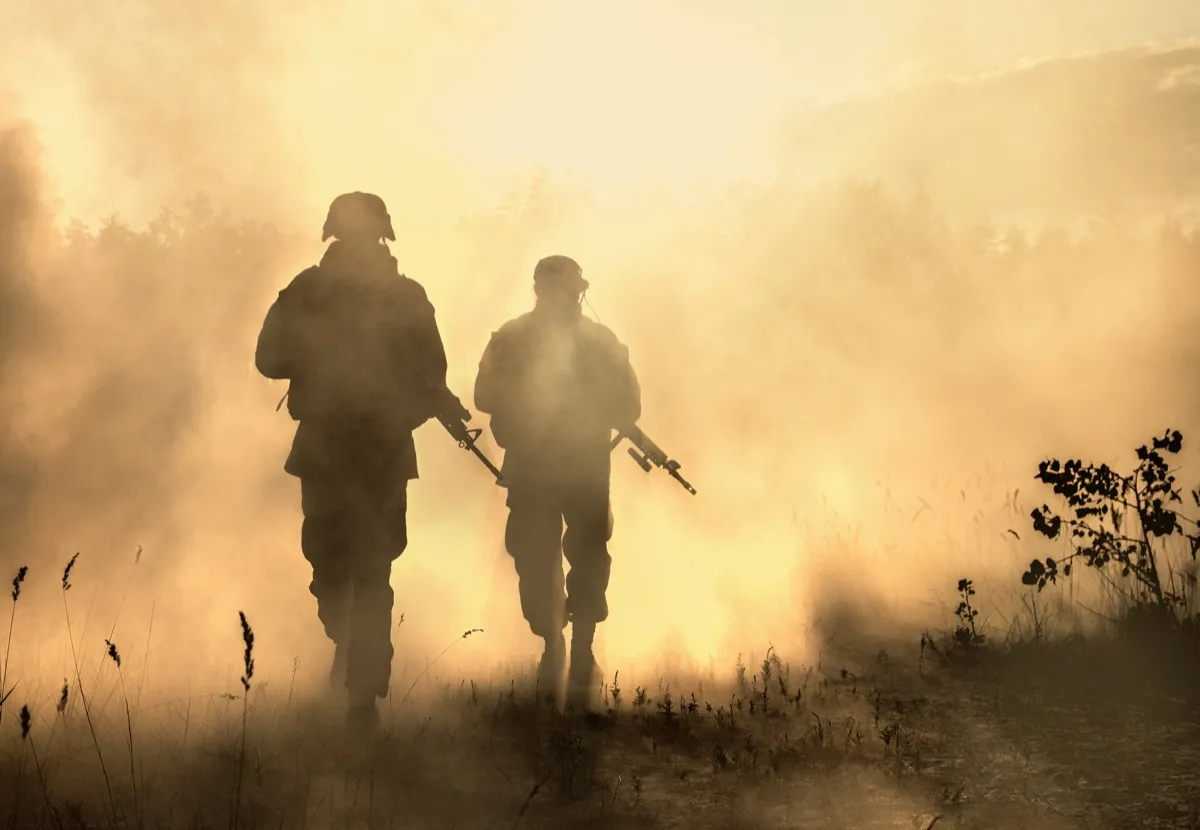
Much like questions from civilians about a military member’s potential kill tally, asking specifics about combat can cause major offense, too. “For the most part, members of the service don’t want to talk about it,” says Katie. “Some don’t mind, but you have to let the military personnel bring it up first.” And for more ways you can show your appreciation for those who serve our country, check out these 30 Veteran’s Day Quotes That Show Gratitude For Our Military.
3
“When are you done?”

While having someone in the armed services back at home may seem like a goal for some civilians, asking someone in the military when they’re “done” is akin to asking anyone in another career when they plan on leaving their field. For many members of the military, being in the service isn’t just about having a job—it’s a major part of who they are, and a career they’re eager to continue, even if it means prolonged periods away from their home.
4
“I’m glad you made it back in one piece.”
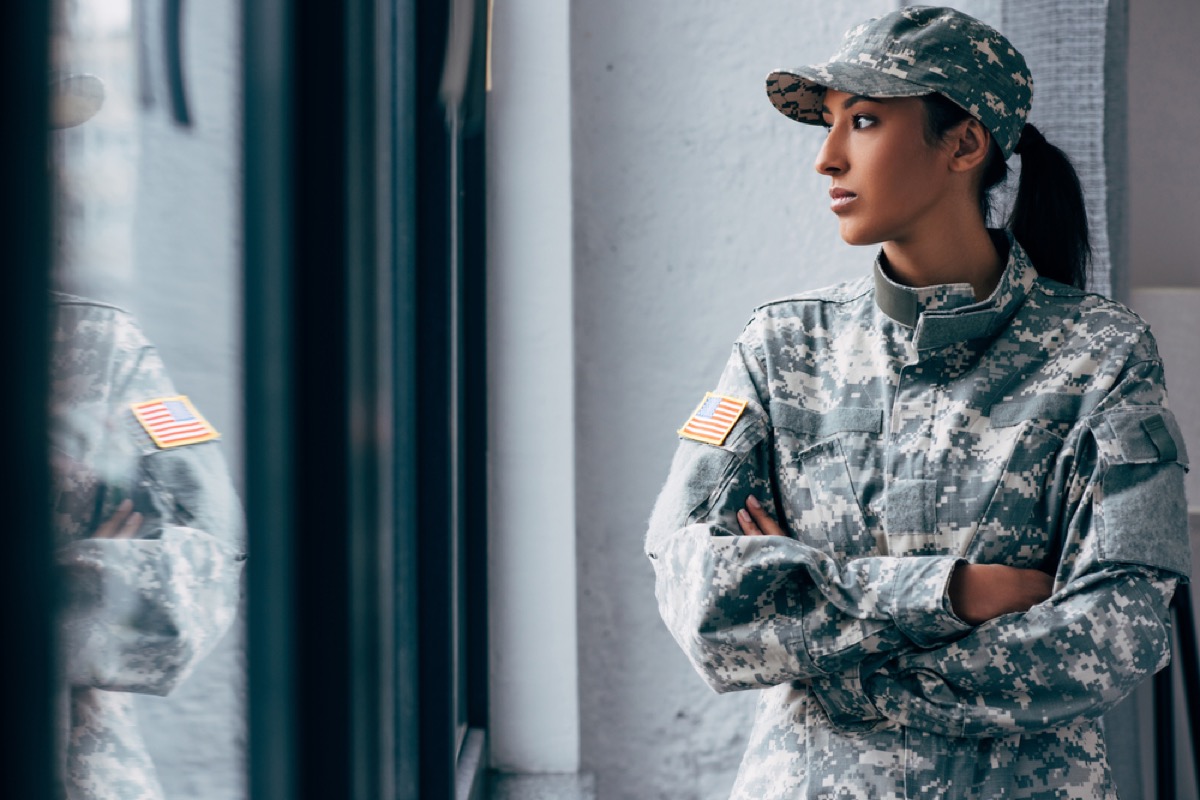
Of course, it’s natural to be relieved when someone returns from combat seemingly uninjured. However, considering the deep trauma that often comes along with a military deployment, telling a member of the military that they “made it back in one piece” when they may feel like that’s far from the truth can easily cause offense. Not all scars are visible, and a statement like this can make it feel like you’re ignoring a significant part of a veteran’s experience.
5
“How could you leave your family for so long?”

While deployments can be undeniably difficult on a family, acting as though a member of the armed service has abandoned their spouse or kids by deploying is patently offensive. Military members have to pay the bills, too, and while that may sometimes mean spending significant amounts of time away from home, asking them about how they could leave their families is seriously rude. And for more things to know about the families of military members, check out the 20 Things Military Spouses Want You to Know.
6
“What do you think about what’s going on in the news?”

Although members of the military are likely to have a better firsthand understanding of what’s going on in war zones than your average civilian, that doesn’t mean they’re always eager to talk about it. Don’t treat your nearest service member like a never-ending fountain of information on politics, and don’t go out of your way to ask their opinion every time a tragedy strikes. And for more things you didn’t know about the military, check out these 28 Celebrities Who Served in the Military.
7
“What’s it really like over there?”

Describing a place someone else has never been is undeniably difficult, and when you add in factors like the trauma a service member may have dealt with during their deployment, asking this can be a more loaded question than you might imagine.
8
“Did anyone you know die?”
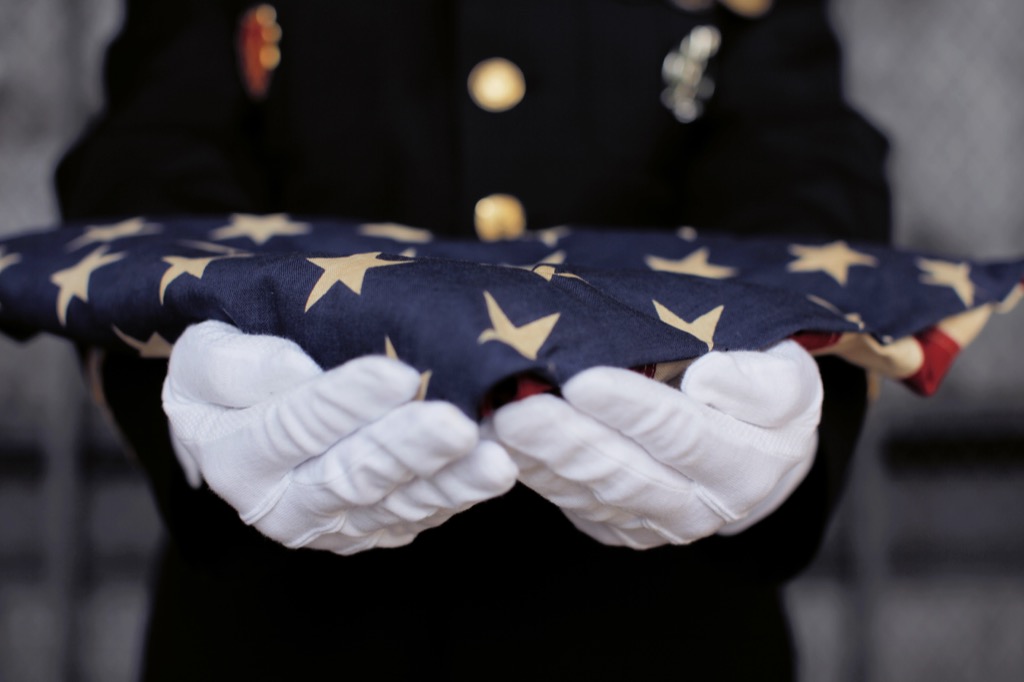
Of course, fatalities do happen in the armed services, and it can be extremely traumatic for those who lose colleagues and loved ones. However, just because someone who served is also likely to know someone who died during service doesn’t mean you get a free pass to ask them about it. After all, you likely wouldn’t want someone prying about the death of someone close to you, either.
9
“It must be hard to be gone for that long.”
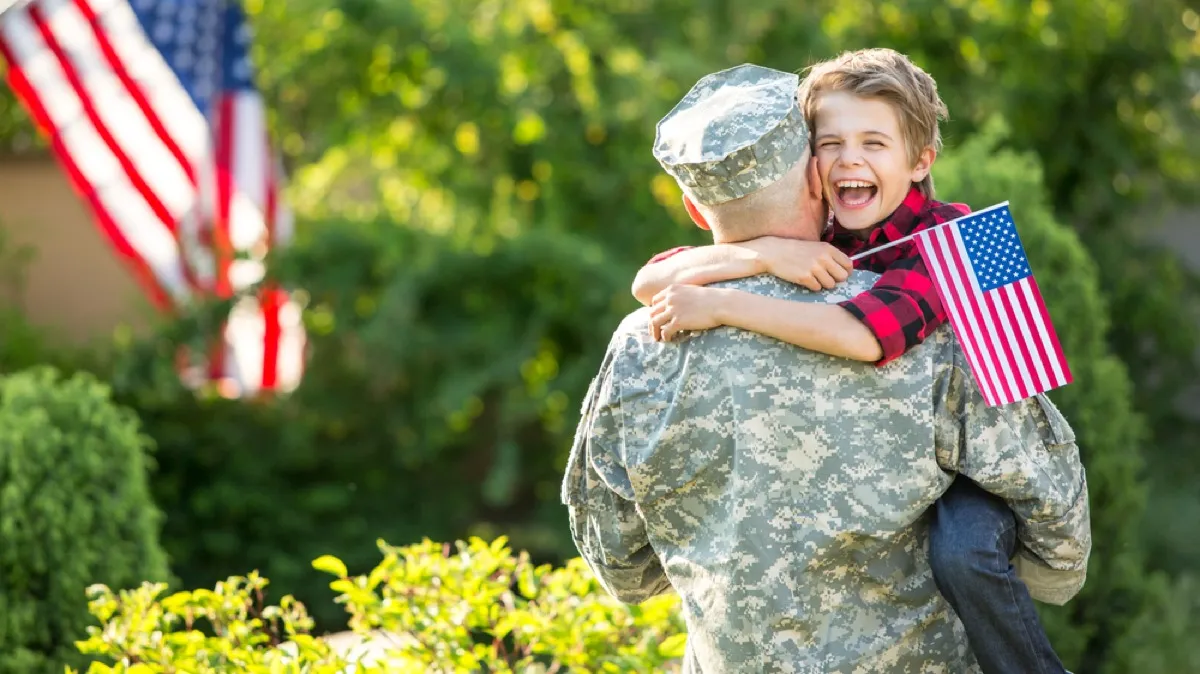
While long deployments can be difficult, assuming that everyone reacts the same way to them minimizes the experience of both service members and their families. If you want to know how someone feels about being deployed, the best approach is to wait for them to bring it up.
10
“You seem so normal.”

Joining the armed services can change a person in a number of undeniable ways. But telling someone in the military that they “seem normal” is not only rude, it can make them feel alienated, as well. There’s nothing abnormal about being in the service, even if it’s not familiar to you.
11
“I don’t agree with what you did over there.”

While everyone is entitled to their own political beliefs, a member of the armed services isn’t the right person to take them out on. Vets and active duty members aren’t the ones in charge of government policy, and their jobs can range from being on the front lines in combat to sitting behind a desk, thousands of miles from the action. Just because you don’t necessarily care for what our military is doing doesn’t mean your nearest veteran needs to hear about it.
12
“Do you feel guilty?”

There are likely many members of the armed services who feel guilty, or, at the very least, conflicted about what they’ve seen and done over the course of their career. But there are just as many, if not more, who feel they’ve served an important purpose in maintaining civilian freedom and, in many cases, helping people during their deployments. Asking a military member if they feel guilty about their service is akin to saying that you think that’s how they should feel.
13
“You must miss a lot while you’re away.”

Deployment can be difficult for families, but it’s hardly a one-size-fits-all experience. Members of the military may have family, friends, and mentors in the service as well, and considering the intense nature of their work when they’re deployed, some people may not feel like they’re missing out. And, of course, for those who do, there’s no need to rub salt in the wound.
14
“Let me buy you a drink.”

It’s understandable that you might want to show a member of the armed services your appreciation by offering to treat them to a drink. However, considering that the National Institute on Drug Abuse reveals that nearly half of service members reported binge drinking, and an untold number are trying to distance themselves from those vices, this seemingly nice gesture may actually put a service member in an awkward position when they feel the need to decline, or worse yet, accept against their better judgement.
15
“I know someone who died in combat.”

In the same way that you shouldn’t tell someone with cancer that your uncle’s roommate’s friend died of it, you shouldn’t tell someone in the military that you know someone who died doing a job similar to theirs. It’s an uncomfortable conversation, even if it is true.
16
“Can you believe those [insert racist term here].”

While it should go without saying that racism and xenophobia are never okay, trying to get a member of the military to co-sign your hateful sentiments is never a good idea. Considering that many people in the military do humanitarian work in the areas they’re deployed to, your offensive sentiments about other people and cultures will likely fall on deaf, or angry, ears.
17
“It’s a crime they pay you so little.”

NPR reported in 2018 that an estimated 23,000 military families receive food assistance in the United States. But numbers aside, implying that every military member is struggling to get by—or, frankly, mentioning their pay at all—is seriously offensive and impolite.
18
“Do you have PTSD?”

Of course, a staggering number of veterans struggle with PTSD. According to the U.S. Department of Veterans Affairs, up to 30 percent of Vietnam vets are diagnosed with the condition in their lifetime, for example. That said, it’s never appropriate to ask a former or current member of the military about their PTSD status. Firstly, it’s intrusive and potentially triggering to bring up someone’s mental health history. And on top of that, many people assume that the only source of PTSD in the service is combat, while everything from sexual assault to physical abuse can be a catalyst for this diagnosis among service members and civilians alike.
19
“I know how you feel.”

If there are six words that you should pretty much strike from your vocabulary, no matter the situation, make them “I know how you feel.”
While you may feel as though you can relate to what a military member has gone through, unless you’ve been in the service yourself, it’s unlikely that you can truly understand in any meaningful way. And when you tell someone in the military that you know how they feel, you’re effectively prioritizing your story over theirs, often making it difficult for them to open up.
20
“You signed up for this.”

On a surface level, yes, it’s true that members of the military literally signed up for the service they perform. However, telling a military member that they should be fine with whatever the service throws at them because they enlisted is nothing short of rude and dismissive.
Military service often means your life can change significantly from day to day, and in many cases, in ways you hadn’t imagined. While members of the military may have had some inkling that they could be deployed or see combat, there’s no good reason to give them your two cents about what they should or shouldn’t have anticipated. And for more military facts, check out 30 Wild Facts About the U.S. Army.